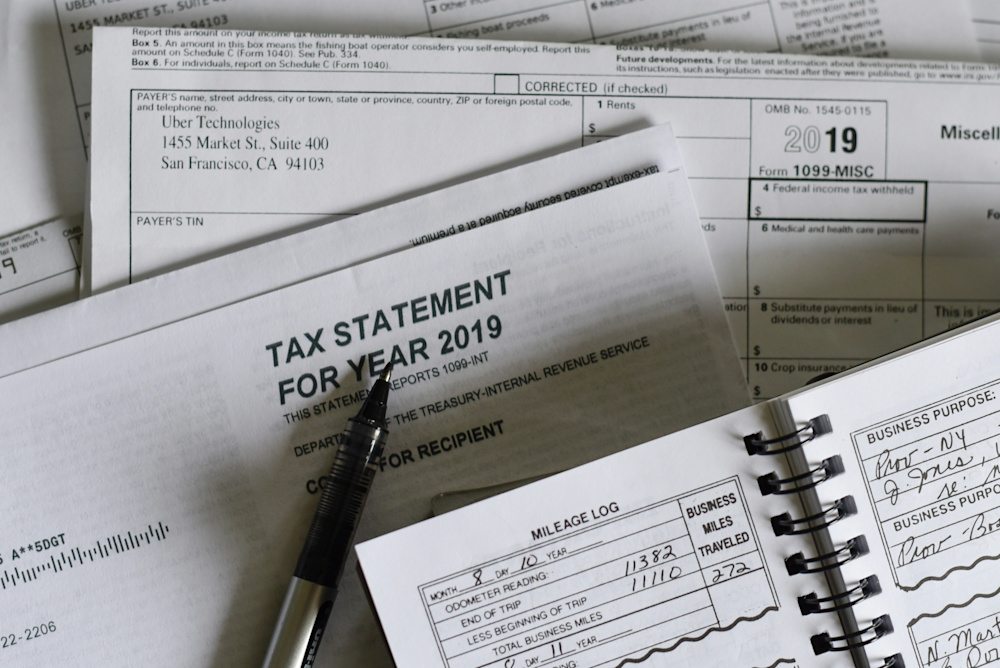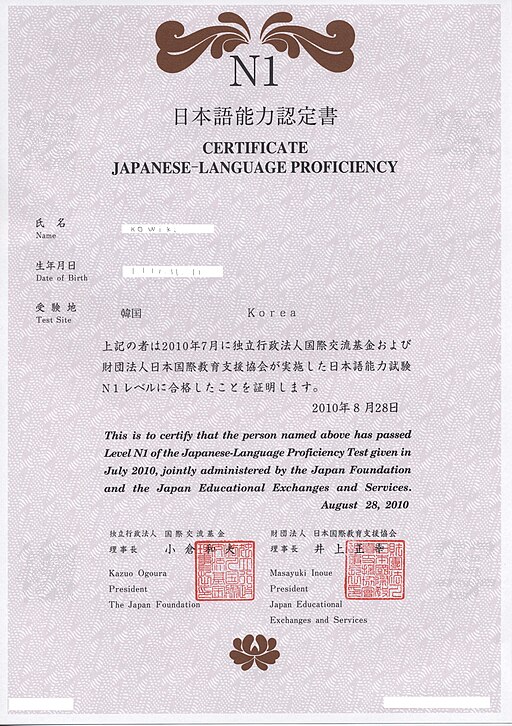Updated August 4, 2025
Japan Permanent Residency Points Explained: A Detailed Guide
Getting permanent residence, or PR, in Japan is a huge milestone for any foreign resident as it offers long-term stability, freedom from visa renewals, and increased opportunities to build a life in Japan.
The common method of gaining PR in Japan is living there for ten consecutive years.
But did you know Japan has a PR point-based system that offers a much faster path?
In this guide, we’ll break down how Japan's permanent residency points system works and what you need to know before applying.
In this article: 📝
- Highly skilled professional visa and PR in Japan
- How to get PR in Japan?
- Standard vs. Points-Based PR Eligibility
- Japan PR point breakdown
- How many PR points do I need to apply?
- How to apply for PR in Japan with the point system
- How to check my PR points
- Exceptions and special considerations for PR points in Japan
- Frequently asked questions
- Some tips for the PR point system in Japan
- In closing
Highly skilled professional visa and PR in Japan

Before jumping right in, there’s a little confusion between the HSP (Highly Skilled Professional) Visa and having permanent residency in Japan.
In general, the Japanese PR points system can also be applied to the HSP Visa. If you are eligible, you can apply for the HSP Visa in Japan. Similar to a working visa in Japan, the HSP visa allows a longer period of stay in Japan, along with:
An automatic 5-year period of stay
Full-time work eligibility for spouses on specific visas
A fast-track to PR
But you do not need the HSP Visa to apply for PR in Japan. All that matters is the amount of PR points you qualify for.
How to get PR in Japan?
Getting permanent residency in Japan usually requires living in the country for 10 consecutive years.
But in 2012, the Japanese Immigration Bureau introduced a points-based system for highly skilled foreign professionals. This was the HSP Visa.
Then, in 2017, Japan expanded the point system, making it possible for permanent residency in 1 or 3 years, depending on the points you qualify for.
70 points: eligible after 3 years of residence
80 points: eligible after 1 year of residence
These points are based on many factors, including education, income, work experience, etc, which will be broken down later.
However, to apply for this point-based system, you must hold a mid to long-term visa, typically with 3 or 5-year validity.
Standard vs. Points-Based PR Eligibility
Here is a simplified table comparing the standard 10-period residence in Japan vs the point-based PR:
Path |
Residency Required |
Key Requirements |
Standard PR |
10 years |
Stable income, tax compliance, and good conduct |
Points-Based PR |
1–3 years |
70–80+ points, skilled worker criteria |
In general, the PR point system helps reduce the residency requirement in Japan, allowing you to apply for PR faster.
Japan PR point breakdown
Japan’s permanent residency point system is based on measurable criteria, such as education, work experience, Japanese language ability, etc, each with a specific number of points.
Again, these points will help you fast-track to get permanent residency in Japan:
70 points: eligible after 3 years of residence
80 points: eligible after 1 year of residence
These criteria are from Japan’s Immigration Service Agency (ISA)’s Points Calculation Table [PDF]. The table can be quite overwhelming, so we break it down for you here.
Please note that you do not need to qualify for every point; rather, you need to be eligible for the points and reach up to 70 or 80.
Education

Having a university degree is beneficial in getting your points for PR in Japan. The higher the level of education, the more points you will gain:
Bachelor’s degree = 10 points
Master’s = 20 points
PhD = 30 points
Specifically, you will get an extra 5 points if you have a professional degree in business management, such as an MBA or MOT. In total, it would be 25 points.
You will get bonus points if you:
Graduated from a Japanese university: 10 points
Graduated from a highly reputable institution recognized by the Japanese government: 10 points
Have two or more doctoral or master's degrees or professional degrees in multiple fields: 5 points
Here is the list of highly reputable institutions for PR recognized by the Japanese government as of January 2025.
Work experience
Your work experiences must be related to your current position.
For example, if you are a software engineer in Japan for 3 years, your past job working as a restaurant manager for 2 years wouldn’t count for 5 years total. It would only count for 3 years since it is not in the same field.
Here is Japan’s PR point breakdown for work experience:
Less than 3 years or no experience: 0 points
3 years or more, but less than 5 years: 5 points
5 years or more, but less than 7 years: 10 points
7 years or more, but less than 10 years: 15 points
10 years or more: 20 points
Annual salary (income)

Your annual income, along with your age, is a major factor in Japan’s PR point system.
Salary/Age |
Under 30 years old |
30–34 years old |
35–39 years old |
40 years old or above |
¥10M or more |
40 |
40 |
40 |
40 |
¥9M to ¥10M |
35 |
35 |
35 |
35 |
¥8M to ¥9M |
30 |
30 |
30 |
30 |
¥7M to ¥8M |
25 |
25 |
25 |
0 |
¥6M to ¥7M |
20 |
20 |
20 |
0 |
¥5M to ¥6M |
15 |
15 |
0 |
0 |
¥4M to ¥5M |
10 |
0 |
0 |
0 |
¥3M to ¥4M |
0 |
0 |
0 |
0 |
A simplified chart of Japan’s PR points based on age and annual income.
A couple of things to note about this criteria: You must provide documentation such as tax certificates (住民税課税証明書 and 納税証明書) or payment slips as proof.
Additionally, only income earned in Japan counts towards these PR points.
Age
Generally, the younger the applicant, the higher the PR points they can obtain. Here is Japan’s PR point breakdown based on age:
Under 30 years old (15 points)
30-34 years old (10 points)
35-39 years old (5 points)
40 years old or above (0 points)
Japanese language proficiency

N1 Japanese Language Proficiency Test (JLPT) certificate
Having official or valid certificates of your Japanese proficiency adds additional PR points:
JLPT N1 = 15 points
JLPT N2 = 10 points
There are a couple of exceptions, such as:
Provide an equivalent Japanese proficiency certificate, such as 400+ or 480+ points on the BJT or N2 and N1 for the JLPT.
Graduated from a foreign university with a major in the Japanese language (15 points)
Academic achievement, awards, and/or certifications
You may earn extra points for achievements such as research, patents, or certifications for specialized or technical activities:
Have at least one registered patent: 15 points
Be a corresponding author of 3 or more academic papers, published in journals listed in official academic databases recognized by Japanese national institutions: 15 points
Have equivalent research achievements [list here]: 15 points
For the last point, the Minister of Justice will decide if you qualify for the points after consulting with the relevant government agencies.
While there is no official “academic database” that the Japanese Immigration Bureau publicly lists, they will most likely accept major academic databases. Check out CiNii’s list of academic databases.
Additionally, there are an extra 5 points (20 points total) if these achievements were in advanced academic research activities.
Additional points
There are additional PR points you can gain depending on the PR category you apply for:
Advanced academic research activities
Advanced specialized or technical activities
Advanced business management activities
Depending on which PR point you qualify for, you will get an extra 5-10 points.
How many PR points do I need to apply?
You must have at least 70 points after staying in Japan for 3 years.
If you have over 80 points, then you can apply for permanent residency after living in Japan for a year.
How to apply for PR in Japan with the point system
Like all visa applications in Japan, you will need the application along with supporting documents.
Specifically, when applying for PR through the point system, you will need to submit the following:
Supporting documents for each category
The supporting documents act as proof that you qualify for the points you are claiming, such as, degree, income, JLPT certificate, etc.
There are additional PR requirements, such as good & legal conduct, financial stability, and contributions to Japan’s pension system.
How to check my PR points
While you can use the Official Points Calculation Table [PDF] to calculate your points, Japan’s Immigration Services Agency created this English PR Point Calculation Excel, where you can check your points and submit them when applying for PR.
Here are two unofficial online PR points calculators for quicker calculations:
You can also contact any immigration office to help you check your points and ensure you submit the correct documents.
Additionally, you can visit the foreign residents' help centers, such as the Tokyo Support Center for Foreign Residents for additional information.
Exceptions and special considerations for PR points in Japan
Japan’s point-based system is a way to fast-track your path to permanent residency in Japan. But, there are normally 3 exceptions.
The 10-year residence route: It does not require points as long as you have legally lived in Japan (with at least 5 years on a work visa).
Long-term contributions to Japanese society: These can be humanitarian considerations or strong family ties, but these are special cases.
Approve exceptional applications made by the Minister of Justice: This is a rare case, though.
Frequently asked questions
Can I apply for PR while on a 1-year visa if I have 80 points?
Even if you have 80 points, you must already have a long-term visa, typically 3 or more, to apply for PR in Japan.
Can self-employed or freelancers use the point system?
While it can be difficult, it is still possible as long as your income and tax filing are documented.
Does my time on a student visa count toward PR?
Yes, your time on a student visa in Japan may count towards the 10-year residency requirements for PR in Japan. In general, at least 5 of those 10 years must be on a working or long-term visa.
However, generally, being on a student visa does not count toward the PR points residency requirement.
Some tips for the PR point system in Japan
Here are a few tips to keep in mind:
Try to maximize multiple categories (e.g., income + education + JLPT)
Keep a long-term visa status— 3 or 5-year stays preferred
Use the official point calculator or speak with a legal professional
Maintain a clean record, pay your taxes, and contribute to social insurance
In closing
The point-based system is a shortcut for foreigners to get PR in Japan if they have the correct qualifications.
If you think you can apply for PR in Japan, then definitely see if you have enough points. Plan your application carefully, as it can take 6 to 15 months to hear the results.
Get Job Alerts
Sign up for our newsletter to get hand-picked tech jobs in Japan – straight to your inbox.









